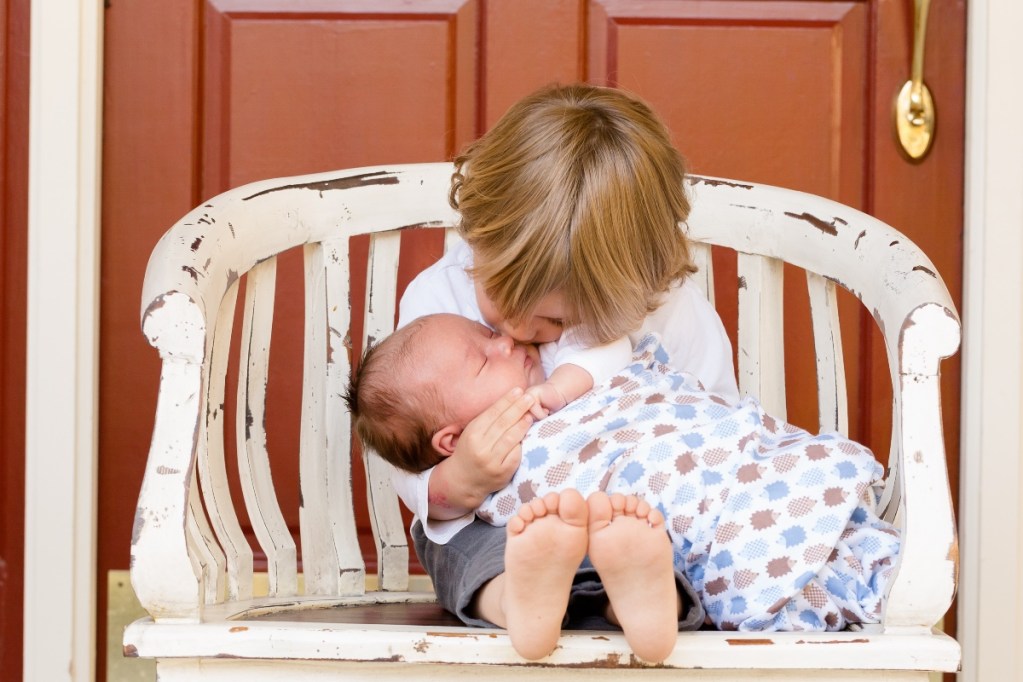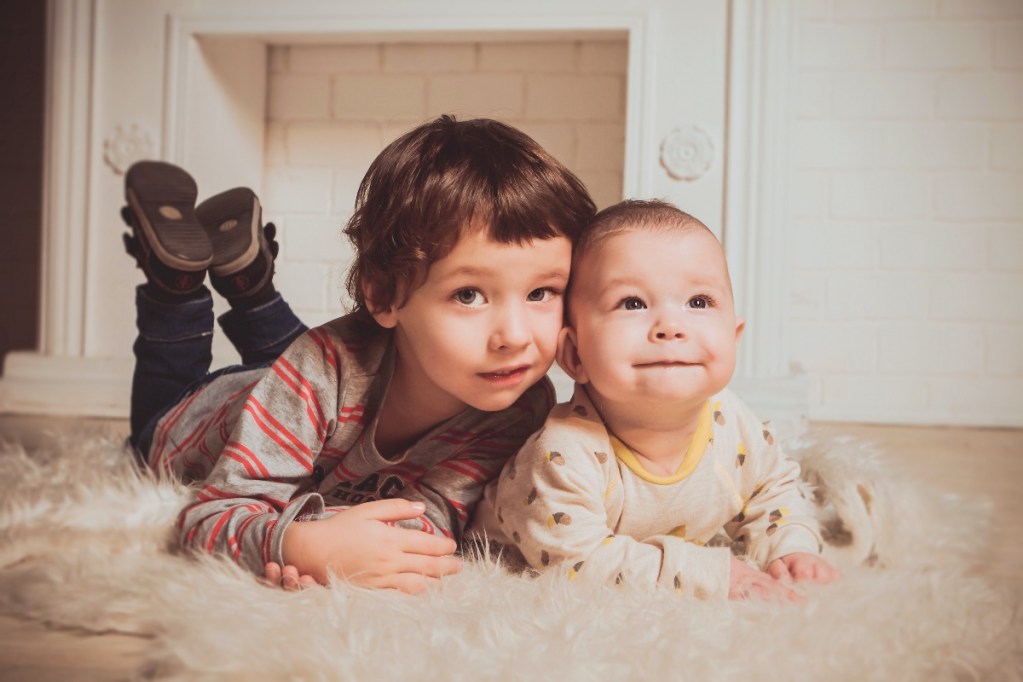Your first baby completed you. You loved them so much that you decided to have another.
Parents may worry their kids won’t hit it off. These concerns may be amplified for parents having children close together. Toddlers don’t have the language or empathy to understand why a new loud, tiny human is commanding lots of attention — attention that used to be theirs.
The thought is enough to break your heart at a time when it should feel fuller than ever. Here’s what to know about helping a toddler adjust to a new baby before and after their sibling arrives.

What to do before the baby is born
Toddlers develop at different paces. Some may have more comprehensive and expressive language skills than others, so you’ll want to ensure you meet your toddler where they are. You know best what your child can handle. Here are a few ideas for pre-baby preparation with your toddler to get you started.
Teach your child to wait
When the new baby arrives, you may be unable to tend to your toddler on demand. This reality may be jarring for a toddler — a meltdown reaction isn’t abnormal toddler behavior. Try to get ahead of it. Toddlers can often understand simple commands, including “Please wait.” Before the baby arrives, practice this request by having your child wait a minute or two before reading them a book.
Create a toddler-friendly space
Toddlers can perform basic self-care, particularly kids around 2 years and older. They can pour from small pitchers, grab snacks, and play independently. You can have a snack drawer so they can grab food. Put out a small pitcher of water and a cup so they can help themselves when thirsty. Keep their favorite toys visible and within reach. Allowing your child to get to their creature comforts can reduce the number of requests and foster independence.
Practice makes perfect: Meet real babies and purchase a baby doll
Book a play date if a loved one has a baby. There may not be much playing happening, but your toddler will observe — and hear — what it’s like to have a baby. Consider purchasing a doll for your home. Practice gentle hands and cradling. These real-life experiences may be more beneficial to a toddler than a book they likely can’t comprehend.
Get support
You may have many things left over from your first pregnancy being handed down to the new babe. If people ask what you need this time, consider asking for support. Having a trusted friend or grandparent spend one-on-one time with your toddler can ensure the first baby has plenty of love, care, and distraction from the massive life change that just happened.
Have the baby get the toddler a present
Many parents purchase a present from the new baby to the sibling to soften the blow. What should you get? Forget the “big brother/sister” shirts — your kid likely can’t read or understand those. Instead, choose something your child loves, like a new truck or a soft stuffed animal.
Note toddler behavior red flags
Is your child clingier now that you’re expecting? What’s normal toddler behavior when Mom is pregnant? Many expectant parents note their kids seem a little more attached pre-baby. Toddlers also can be generally affectionate toward their parents, and pregnant people may be experiencing hormonal changes that make them moody. Step back and try to assess which applies to your situation. If you’re concerned about your toddler’s behavior when Mom is pregnant — or at any time — talk to your pediatrician about a referral for early intervention.

How to help your toddler adjust to a new baby when they arrive
The baby has arrived, and it’s time for everyone to meet. Here’s how to handle the introduction and issues.
Give your child a loving hello
When you see your toddler post-birth, give them a huge smile and hug to assure them that you still love them, too.
Release the pressure
You may want a TikTok-worthy reaction, but don’t place any expectations on the first meeting. Let your child stare, ignore, cry, laugh — all feelings are valid.
Validate all feelings but not all behavior
Tantrums are not abnormal toddler behavior — they’re an emotional release. Biting and throwing things are, too, but that doesn’t make them OK. If your child displays these behaviors toward you or the new baby, calmly say, “I see you’re upset, but I can’t let you bite. We’re moving over here where it’s safe.”
Involve the toddler in the baby’s care
Allowing toddlers to help with the new baby in small ways can make them feel included and empowered. For example, they can get a diaper. If bottle feeding, they can help hold the bottle.
Have a special box of toys when nursing
Nursing provides nutritious food and so-cute cuddles. However, it can also leave a toddler a bit bored or left out. Make the time special for your first by having a box of fun toys and books that only come out when you’re nursing.
Schedule one-one-one time
When possible, schedule some one-on-one time with your toddler. Maybe that means coloring with them while the baby sleeps or going out for a walk together while someone watches the baby.
The postpartum period can be difficult. When a toddler with big feelings is involved, it can become even more emotional. Give yourself and your family some grace — this season is temporary. Try to prepare your toddler in advance by working on following directions, gentle hands, and exposure to babies. Even with the best preparation, it may take time for a toddler to adjust to a new baby. Eventually, things should work out. If you’re struggling mentally or emotionally, speak with your OB-GYN about a referral for mental health help. Your pediatrician can help you find resources for toddler behavior red flags. You don’t have to go it alone.



